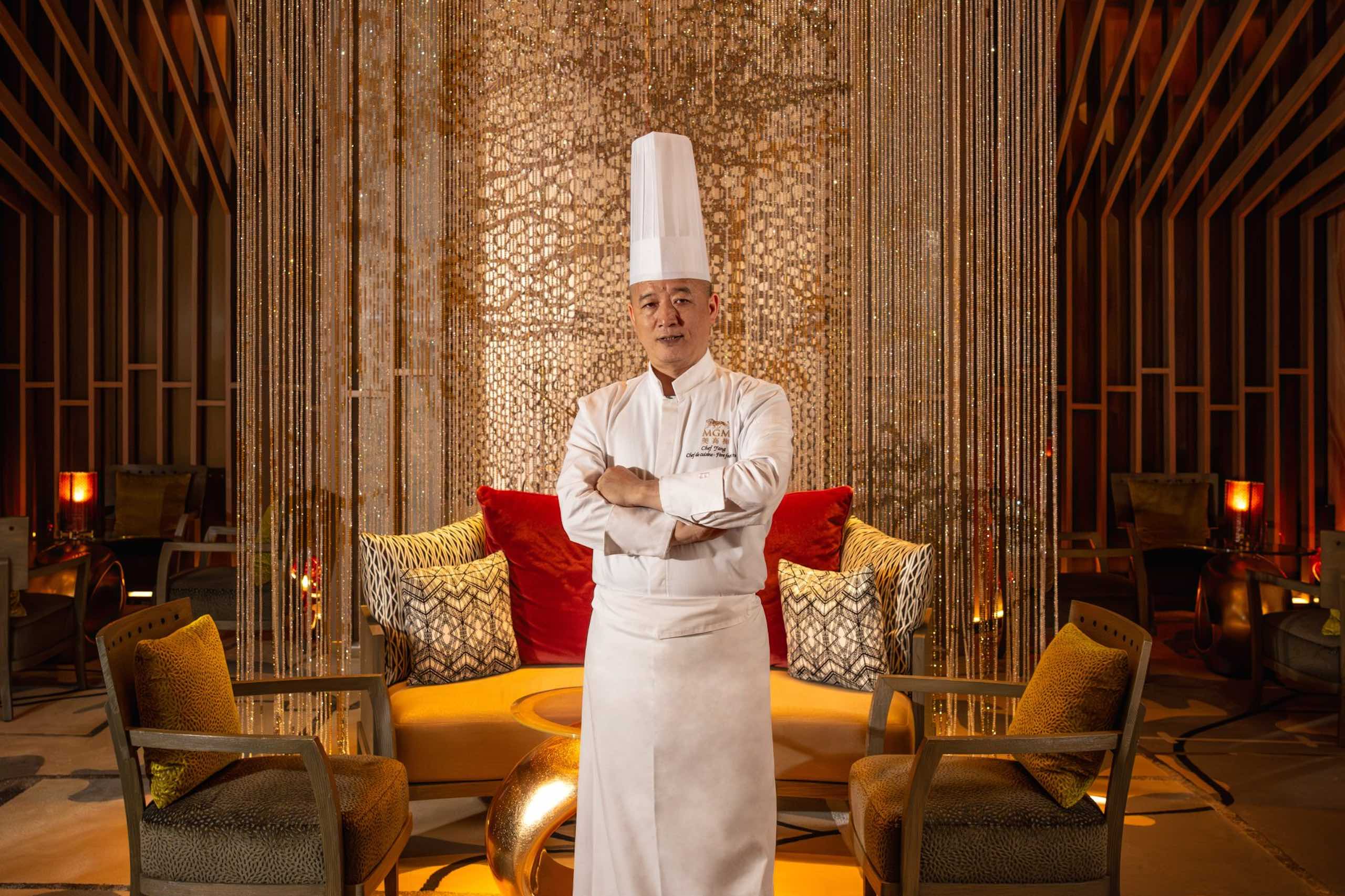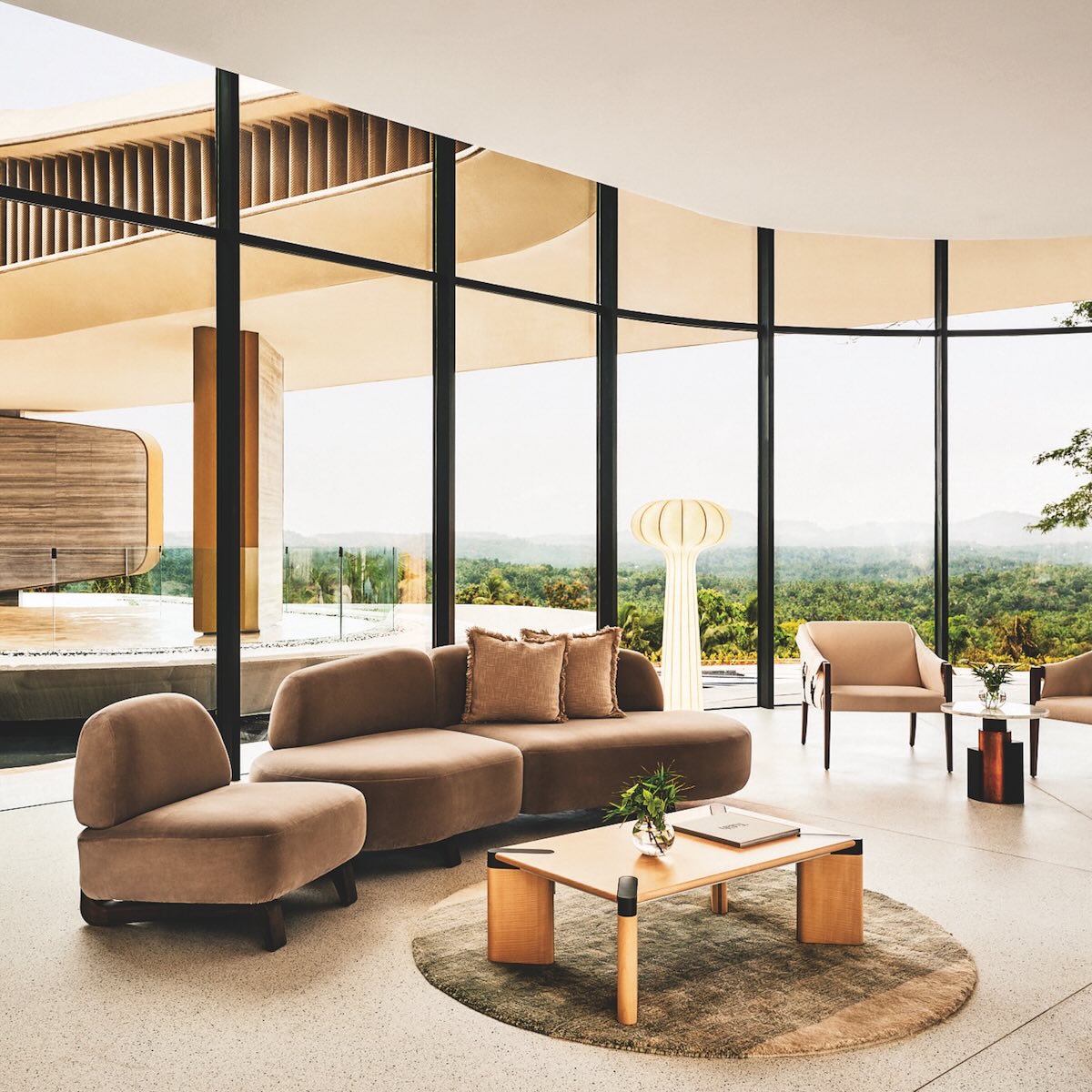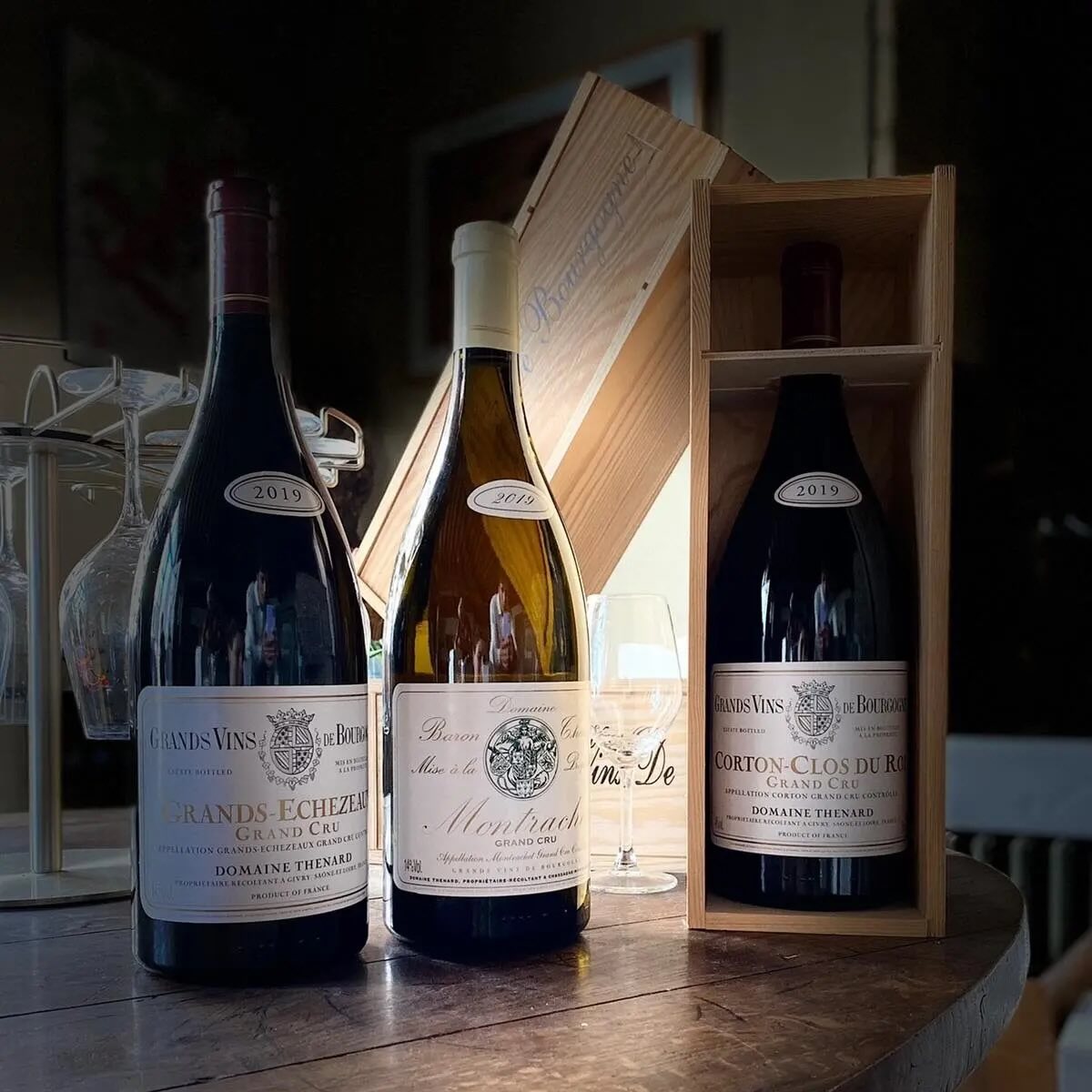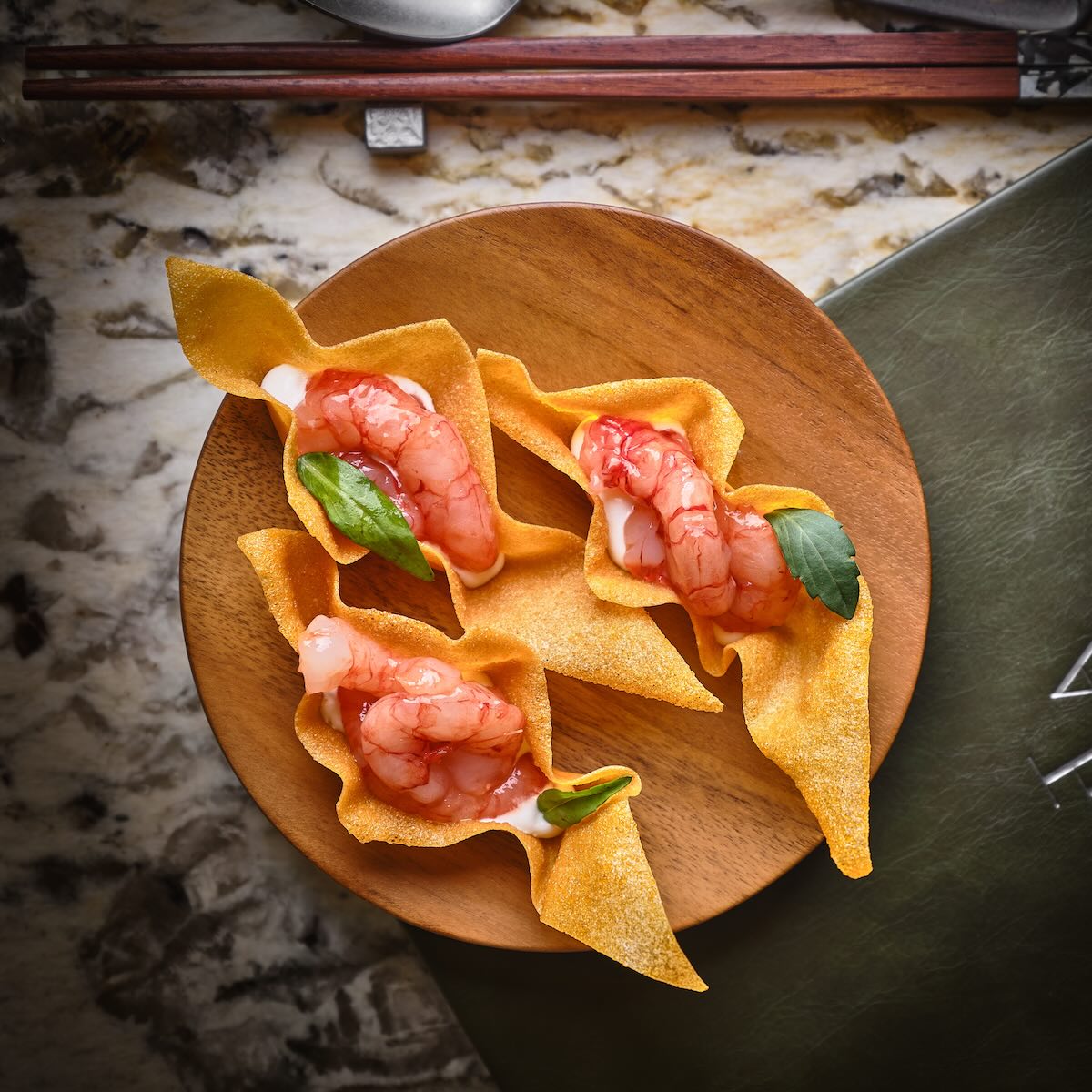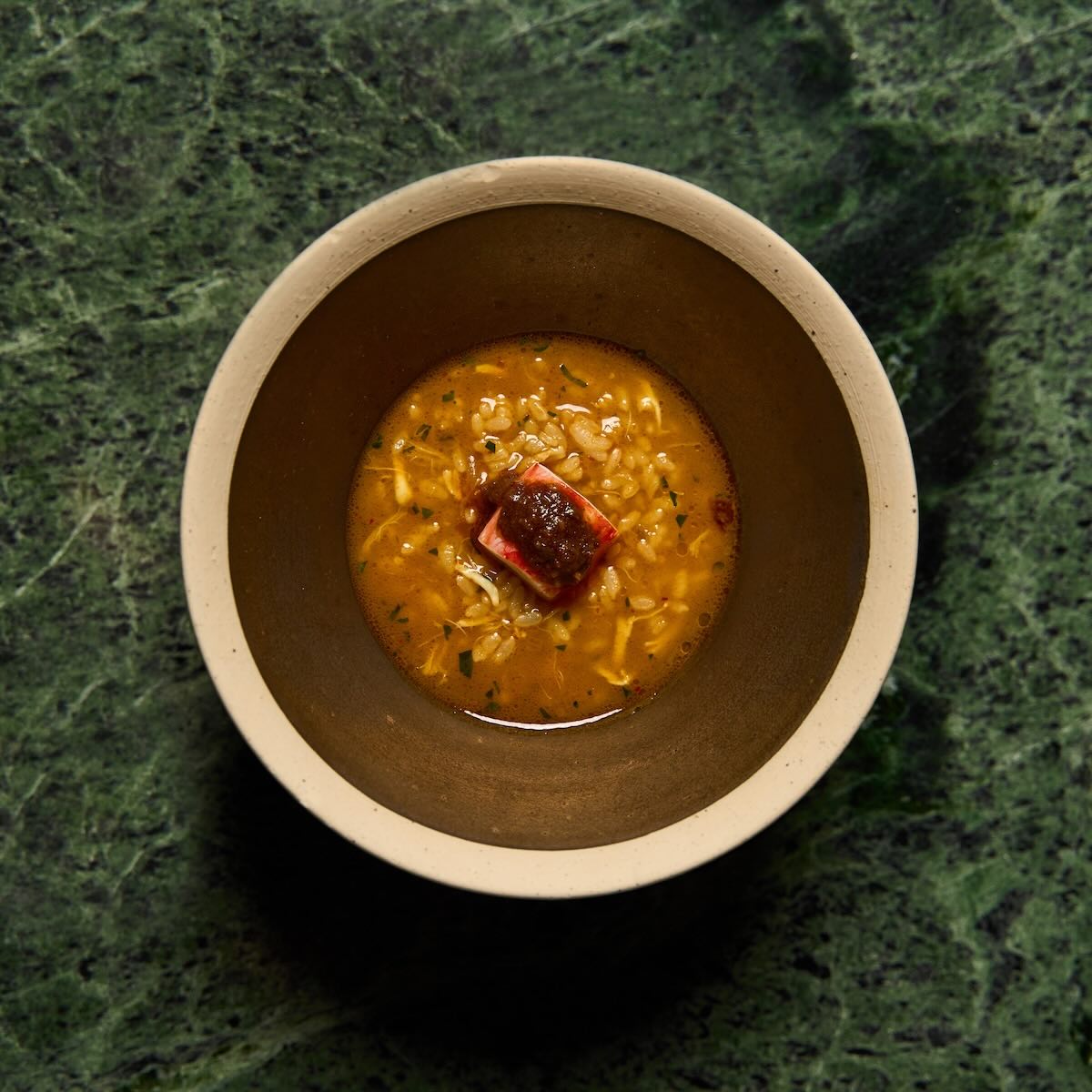This story is part of a series of features covering MGM x RR1HK Culinary Masters Macau 2024, hosted at MGM COTAI in Macau on 28–30 June 2024.
Not to use the terms lightly, but seated across the circular mahogany table of Five Foot Road, one can listen to an oral thesis on Sichuan cuisine by omniscient chef Yang Dengquan, who has devoted his life and career to the details of a culinary sect that not many are privy to.
The broad brushstroke of claiming all the region’s cuisine as merely “spicy food” loses intricacies that the finer palate can detect. A sophisticated one can even find the elements of 24 intricate flavour profiles that stem from five basic tastes: sweet, sour, savoury, bitter, and spicy. The finest chef can summon root powers using indigenous ingredients, legacy recipes, and cooking styles passed on from one generation to the next, but only the chosen few are fully committed to authenticity and accuracy.
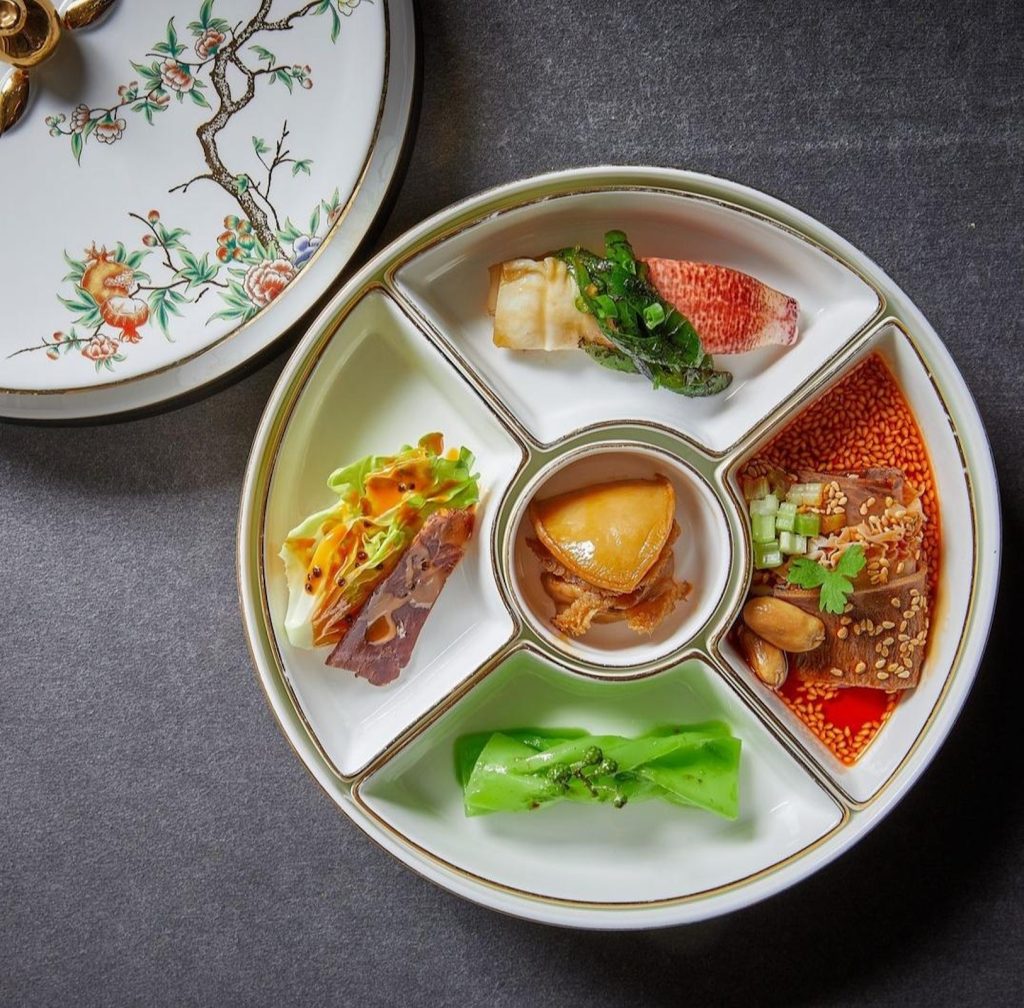
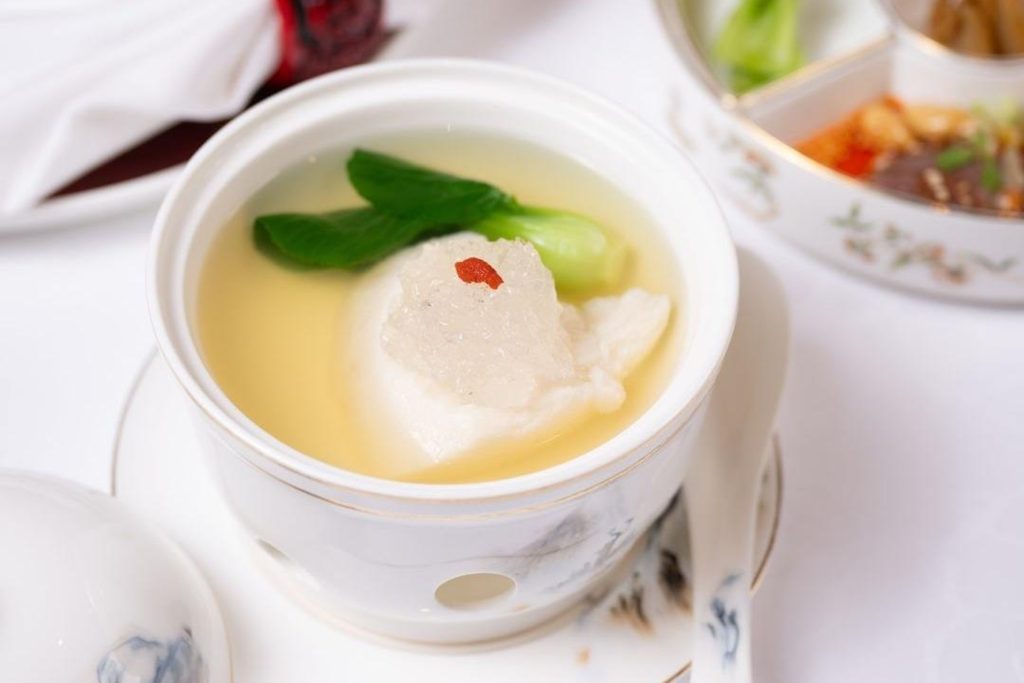
Taking part in Culinary Masters for the second time, the legendary chef of Michelin-star studded Five Foot Road will lead an international contingency around his vast kitchens during MGM x RR1HK Culinary Masters Macau 2024. Held at MGM COTAI, Macau, from 28 to 30 June 2024, the highly anticipated gastronomic event sees a diverse crew of global chefs joining hands for an unforgettable gala dinner, alongside a long weekend of food, fun, festivities, and friendship. As excited as the guests are, behind the scenes, Yang confirms that all the chefs and sous-chefs are enthused to collaborate on a night like no other.
But first, it’s time to hitch a ride back in time, and dive into the theme of the event, the Silk Routes, in a lengthy conversation with Yang as he traces a path through history.
What are the most authentic dishes served at Five Foot Road that can be traced back to years of traditional recipes, handed down from one generation to next?
Stewed bird’s nest with minced chicken and egg white in bouillon and poached Chinese cabbage in bouillon are renowned banquet dishes that can be traced back to the Qing dynasty, and perhaps even earlier. In fact, 40 per cent of the dishes on the menu at Five Foot Road [embody] classic Sichuan flavours. Traditional Sichuan braised beef innards (also named fuqi feipian) and mapo tofu can be traced back to the late Qing dynasty as well, while stewed duck (shenxian yadzi) has an even longer history. These dishes represent the rich history, unique flavours, and refined cooking techniques of Sichuan cuisine. They are renowned for their complex and distinct tastes that have been passed down through generations.

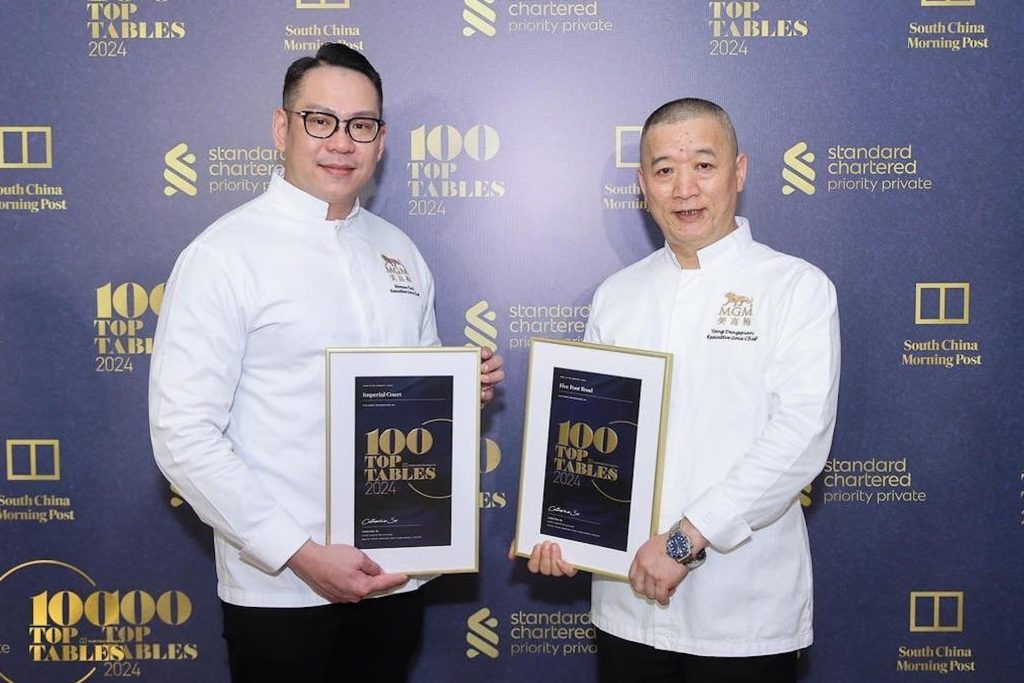
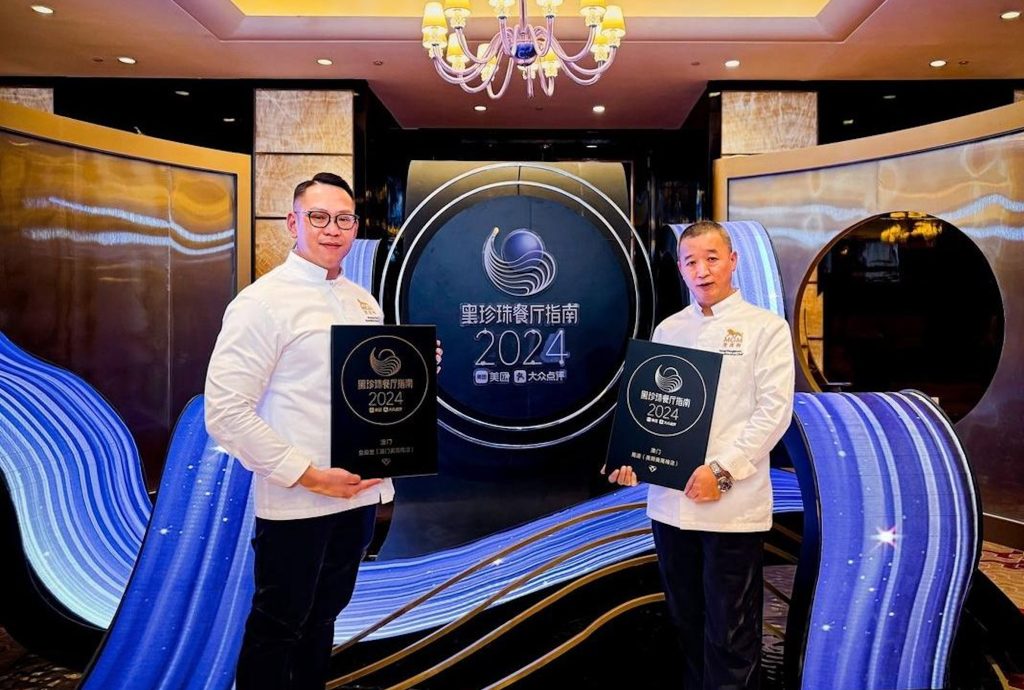
Black Pearl Restaurant Guide 2024.
Five Foot Road has earned its Michelin star for two consecutive years now. What would you say are the greatest challenges in retaining such a high status quo?
The greatest challenges for Five Foot Road in retaining [its] Michelin star year after year are in ensuring consistency in the execution and quality of the dishes, and maintaining the stability and continuity of the culinary team.
What advice would you give to young chefs or culinary students who aspire to achieve Michelin-starred success like yours?
The ingredients are: passion for cooking, relentless pursuit of perfection, intense focus and dedication, [and a] lifelong learning mindset. One needs to keep an open and curious attitude to make progress and achieve breakthroughs. Finally, recognise your own shortcomings, and learn from the strengths of others to complement your weaknesses.
How do you see the culinary traditions of Sichuan cuisine relating to the historical Silk Road?
Sichuan was an important juncture and transportation hub connecting the maritime and overland Silk Road trade routes, facilitating the exchange of goods, people, and culinary influences between China and many other areas in Asia.
The origin of chilli peppers can be traced back to the Central or South America, [which were] brought to Europe in the 15th century and subsequently spread to Asia through the Maritime Silk Road. After passing through East China, chilli peppers eventually reached Sichuan, where they were widely adopted and incorporated into the local cuisine during the Qing dynasty. For this reason, the Sichuan people refer to chilli peppers as “sea peppers”. The overland Silk Road facilitated the further dissemination and spread of chilli peppers throughout China. In fact, the Sichuanese have only been eating spicy food for about 300 years. Chilli peppers [did] not exist in Sichuan prior to that—Sichuanese food relied on numbing-spice Sichuan peppers before the introduction of chilli peppers, which have been used for over thousands of years in the region. The introduction of “sea peppers” via the Silk Road diversified the spice and flavour profiles of Sichuan dishes. Each ingredient and dish must go through a process [of] maturation by time.
How many years of training are typically required to be considered a master of Sichuan cuisine? What key qualities do you look for when selecting and training new chefs in this tradition?
I am a native of Sichuan and cooking Sichuan cuisine is my passion, which I later turned into a profession. The time required to become a master of Sichuan cuisine can vary depending on individual factors and learning pace, so it’s difficult to provide a definitive timeframe. However, when training new chefs, I look for individuals who demonstrate potential, natural talent, diligence, and possess good character. They must have a genuine passion for this profession and be willing to put in sustained effort over time.
Everyone is saying AI is going to take over the world in our lifetime. Do you think artificial intelligence will enter the kitchen and change how we prepare dishes?
We can take artificial intelligence as an assistive tool that can improve efficiency, but the ultimate cooking process and techniques will still depend on the chef’s skills, creativity, and experience. The chef’s expertise and culinary skills are what bring warmth and soul to the food.
This is the second year in a row that you have been invited to participate in Culinary Masters in Macau. What motivated you to be part of this year’s event?
Sichuan’s historical position as a main artery of the Silk Road is irreplaceable, with Chengdu being the very origin of the Silk Road. The dishes offered at our restaurant are Chengdu cuisine (formerly known as Rongcheng cuisine in olden times) and I am participating in the Culinary Masters event again to tell the story of the Silk Road through the food and the 24 flavour profiles of Sichuan.
Collaborating with award-winning chefs from around the world last year was very rewarding for me. This year, I look forward to exchanging ideas and working with renowned chefs from different culinary backgrounds, especially in terms of how to innovate while also preserving heritage.
I hope to introduce Sichuan cuisine to guests from around the world once again through this international event. Driven by a strong sense of mission to rehabilitate classic Sichuan cuisine, I am committed to reforming the stereotype that Sichuan food is only about fiery and hot [flavours], and to promote the [versatile] flavours of the classic Sichuan cuisine essence: “Each dish has its own style; 100 dishes have 100 different flavours.”
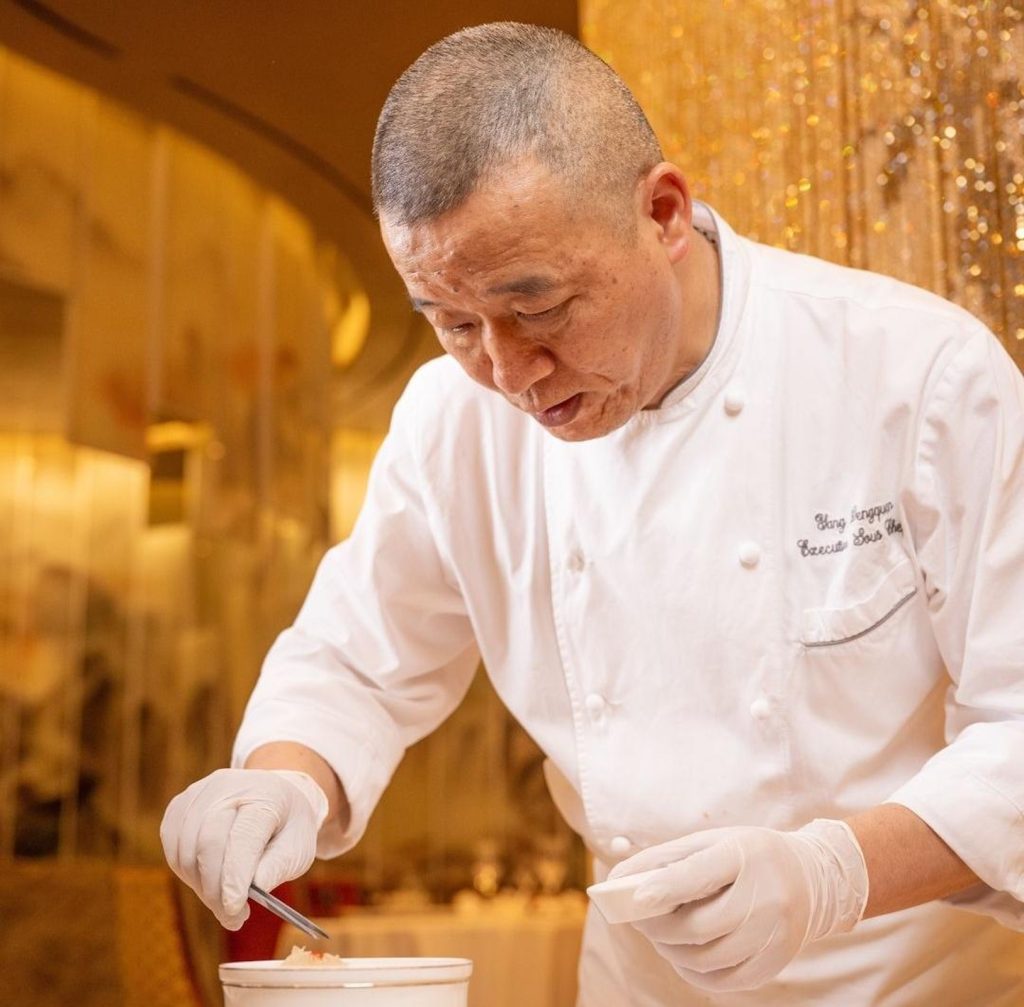
What are you most looking forward to in terms of the global culinary exchange and learning opportunities that this year’s Silk Road-inspired theme will foster?
What I’m most looking forward to is interacting and communicating with international chefs, jointly exploring the ingredients and cuisines from the Silk Road.
Drawing from the experience you earnt at last year’s Culinary Masters, how do you hope to take your Silk Road-themed Sichuan dishes to the next level of authenticity and innovation this year?
I hope to create awe-inspiring Sichuan dishes that seamlessly blend the flavours of the diverse Silk Road cuisines with the core essence of Sichuan cooking that delivers a heavenly sensory experience using a diversified taste profile.
When curating the menu for MGM x RR1HK Culinary Masters Macau 2024, what key factors do you consider? How do you balance seasonal dishes, audience preferences, and coordination with the other chefs’ offerings?
Since we will be collaborating with several chefs to prepare the dinner, we must complement each other’s offerings while also showcasing our own unique culinary perspectives.
To integrate Sichuan cuisine with different cuisines [means] to provide the best experience for the guests. When incorporating Sichuan dishes into the menu, I carefully select the most complementary flavours among the 24 flavour profiles of Sichuan, [which] will not impact the other cuisines but can still showcase the unique characteristics of Sichuan[ese food].
If you could travel back in time, which Silk Road destination would you most want to cook in?
Eastern Europe, as I haven’t had the chance to visit that area before, to explore the possibilities of blending Sichuan cuisine with Eastern European ingredients.
Three words to describe your Silk Road-inspired menu?
Inclusion, heritage, and [innovation].
What’s the most underrated Sichuan ingredient you’re hoping to shine a spotlight on this year?
Well-water salt from Sichuan’s brine wells. Sichuan people have always used well-water salt in cooking as it imparts a subtle, sweet aftertaste that beautifully complements and enhances the signature flavours of Sichuan cuisine. In contrast, sea salt’s aftertaste is slightly bitter. Since it is not a very obvious choice, I would say well-water salt from Sichuan is often underestimated and under-appreciated.
What was the most surprising Silk Road ingredient you discovered during your menu development?
Spices.
What food or technique from the Silk Road regions are you most eager to experiment with in your dishes?
The different ways of using chilli, to enhance my own culinary creativity.
For more delicious details, visit rr1hongkong.com/culinary-masters-2024.
All images courtesy of MGM Dining.





